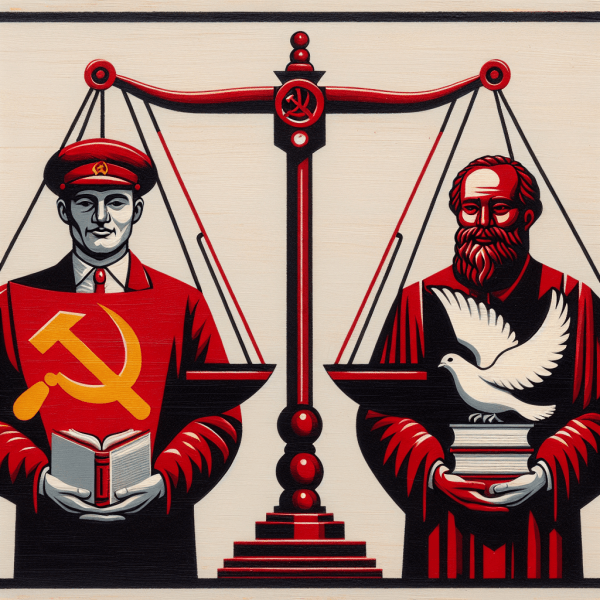The terms Communism and Socialism are often used interchangeably in casual conversation, yet they represent distinct political and economic ideologies with different objectives, methods, and historical applications. This essay will explore the nuances of each term, their meanings, and provide examples of their usage in society.
Definitions
Communism
Communism is a political and economic ideology based on the communal ownership of the means of production, the absence of social classes, and the end goal of a stateless society. Developed from the works of Karl Marx and Friedrich Engels, communism advocates for a revolutionary overthrow of capitalist systems to establish a classless society wherein all goods are shared in common.
Socialism
Socialism, on the other hand, refers to a socio-economic system that emphasizes social ownership and democratic control of the means of production. Unlike communism, socialism does not inherently call for revolution or the immediate dismantling of the state apparatus. Instead, it seeks to reform capitalism through policies that promote wealth redistribution, social welfare, and public ownership, often within the framework of a democratic political system.
Key Differences
Ownership Models
The most fundamental difference between communism and socialism lies in their views on ownership. In communism, all property is owned communally, and individuals have no private ownership rights. In contrast, socialism allows for a mix of public and private ownership, with an emphasis on ensuring that the means of production serve the collective interest.
Economic Organization
Under communism, the economy is centrally planned, eliminating market mechanisms in favor of a collective plan that dictates production and distribution. Conversely, socialism can operate within a market setting, advocating for regulations and reforms that mitigate inequalities and ensure that the basic needs of all citizens are met.
Political Structure
Communism typically envisions the eventual withering away of the state after its role as a tool of class oppression has been fulfilled. In practice, however, many communist regimes have led to authoritarian government structures. Socialism, especially in its democratic forms, supports the existence of a state that can enact and enforce policies favoring social equity while encouraging democratic participation.

Historical Context
Communism in Practice
Historically, the most well-known examples of communism can be found in the Soviet Union under Lenin and Stalin. The 1917 Bolshevik Revolution aimed to replace the capitalist system with a communist society. However, the results were often far from the ideal, leading to oppressive regimes that curtailed personal freedoms.
Socialism in Practice
In contrast, socialism has taken various forms across different nations. Scandinavian countries like Sweden and Denmark have implemented socialist policies within a primarily capitalist framework, leading to robust welfare systems that provide healthcare and education for all citizens without completely abolishing private enterprise.
Example Usage
Communism: “The economic policies of the government were deeply rooted in communist ideology, aiming to eradicate all forms of private property.”
Socialism: “The socialist reforms introduced in the country helped to reduce income inequality and improve public access to essential services like education and healthcare.”
Conclusion
In summary, while both communism and socialism advocate for the collective good, they differ fundamentally in their approaches to ownership, economic organization, and political structure. Understanding these differences is crucial for analyzing their implications on societies and their historical outcomes. Whether one leans toward socialism or communism often reflects a broader philosophical stance on individual rights, economic equity, and the role of government in citizens' lives.








Have a discussion about this article with the community:
Report Comment
We're doing our best to make sure our content is useful, accurate and safe.
If by any chance you spot an inappropriate comment while navigating through our website please use this form to let us know, and we'll take care of it shortly.
Attachment
You need to be logged in to favorite.
Log In